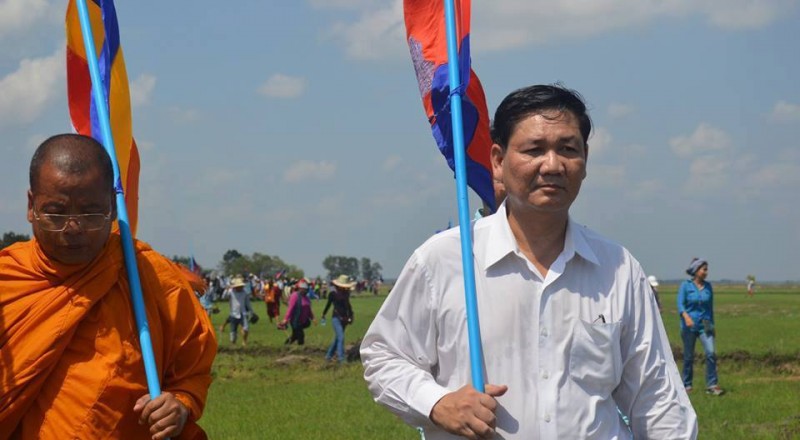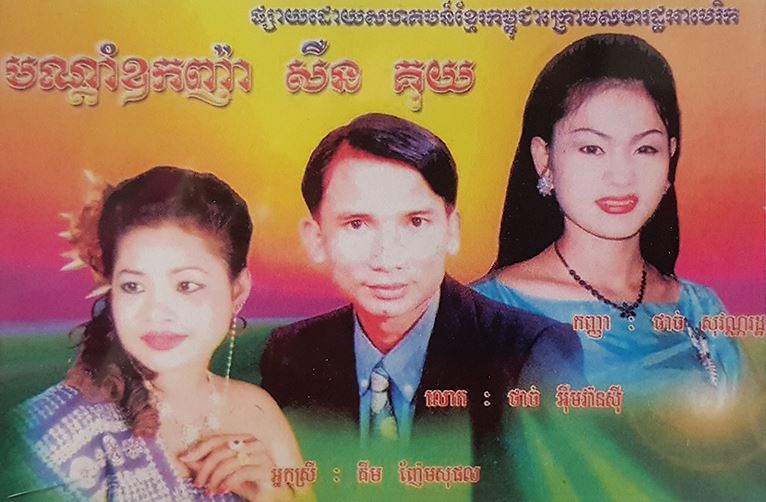ច្បាប់ស្តីពីការគ្រប់គ្រងប្រទេសជាតិស្ថិតក្នុងភាពអាសន្ន
ច្បាប់ស្តីពីការគ្រប់គ្រងប្រទេសជាតិស្ថិតក្នុងភាពអាសន្ន
Full Text of Approved State of Emergency Draft Law
ថ្ងៃអង្គារ ៧រោច ខែចេត្រ ឆ្នាំជូត ទោស័ក ព.ស.២៥៦៣ ត្រូវនឹងថ្ងៃទី១៤ ខែមេសា គ.ស.២០២០
Tuesday the 7th Waning Moon of Citta B.E.2563 equivalent to April 14, A.D.2020 Year of the Rat
Agence Kampuchea Presse
View Khmer Version PDF: Cambodia National Emergency Law Khmer
The following is an unofficial translation of the full text of the Draft Law on the Management of the Nation in Emergencies adopted by the National Assembly of Cambodia this morning:
LAW ON THE MANAGEMENT OF THE NATION IN EMERGENCIES
CHAPTER I
GENERAL PROVISIONS
Article 1: Objectives
This law stipulates the mode for proceeding with and conditions for declaring a national emergency to maintain national security and public order and to protect the lives and health of the people as well as property and the environment when people of the nation are jeopardized.
Article 2: Scope
The scope of this law covers enforcement during a national emergency inaccordance with Article 22 new of the Constitution of the Kingdom of Cambodia.
CHAPTER II
MODE OF PROCEEDING WITH AND CONDITIONS FOR A STATE OF EMERGENCY
Article 3: Mode and Procedures for Declaring a State of Emergency
When the people are jeopardized, the King will publicly announce placing the nation in a State of Emergency in agreement with the Prime Minister, the President of the National Assembly and the President of the Senate.
A declaration placing the nation in a State of Emergency is issued by Royal Decree. A State of Emergency may last no more than three months. The duration may be extended under the same conditions. The special period may be terminated before the expiry date by Royal Decree at the request of the Prime Minister after consulting with the President of the National Assembly and the President of the Senate. In all cases, the National Assembly or the Senate has the right to terminate the period if the situation allows in accordance with the Constitution. Any decision by the National Assembly or the Senate to terminate the special period must be made by Royal Decree at the request of the Prime Minister.
The declaration of the national State of Emergency will be automatically renewed if the National Assembly or the Senate cannot convene for unavoidable reasons such as foreign forces occupying the territory.
Article 4: Conditions of the Nation in an Emergency
A State of Emergency may be declared when the nation is jeopardized by war, invasion by foreign forces, public health emergencies from pandemics and national chaos that threatens security and public order as well as national disasters that threaten or seriously jeopardize the entire nation.
CHAPTER III
MANAGEMENT OF THE NATION IN A STATE OF EMERGENCY
Article 5: Measures To Be Taken When the Nation Declares a State of Emergency
When the nation declares a State of Emergency, the Royal Government may impose:
— bans or limits on the freedom to travel;
— bans or limits on the freedom to hold meetings or gatherings;
— bans or limits on daily work or professional activities;
— bans or limits on people leaving their homes or using other accommodation;
— quarantine or isolation measures in cases of threats to public health caused by pandemics;
— mobilization or displacement measures for people in response to the State of Emergency;
— measures to mobilize, seize, manage and use property and services of legal entities as necessary in response to the State of Emergency. Procedures for mobilization, seizure, management, use and compensation must be fixed by the Royal Government;
— price-fixing measures for goods or services as necessary in response to the State of Emergency;
— measures to close public or private places as necessary in response to the State of Emergency;
— surveillance measures by any means for digital information in response to the State of Emergency;
— bans or limits on distributing or broadcasting information that can cause public panic or turmoil, damage to national security or confusion about the situation under the State of Emergency; and
— other appropriate and necessary measures in response to the State of Emergency.
Measures in a State of Emergency may be applied nationwide or to specific areas.
If necessary, the Royal Government may put in place mechanisms or delegate relevant authorities to use the armed forces to guarantee the above-mentioned measures.
In cases of war or any other circumstances in which national security is seriously jeopardized, management of the nation by the Royal Government in an emergency may be implemented by a martial regime.
Article 6
REPORTING STATES OF EMERGENCY TO THE NATIONAL ASSEMBLY AND THE SENATE
The Royal Government must continuously report measures decreed in a State of Emergency to the National Assembly and the Senate. The National Assembly and the Senate may ask for additional necessary information from the Royal Government within the framework of controlling and evaluating the measures put in place for the nation when it is jeopardized in accordance with the Constitution of the Kingdom of Cambodia.
CHAPTER IV
Penalties
Article 7: Obstructing Law Enforcement When the Nation is in Danger
Excluding other penal offenses, any intentional act to obstruct or create obstacles to enforcing a State of Emergency or any attempt to commit such an act is punishable with imprisonment of one year to five years and a fine of two million riels to 10 million riels. An act of blocking or creating obstacles to enforcing a State of Emergency is punishable with imprisonment of five years to ten years if such an act leads to public turmoil or affects national security.
Article 8: Failure to Respect Measures during a State of Emergency
Excluding any other penal offenses, any intentional act that fails to respect measures put in place by the Royal Government under Article 5 of this law is punishable with imprisonment from one month to one year and a fine of 100,000 riels to two million riels.
Failure to respect state of emergency measures is punishable with imprisonment of one month to five years and a fine of two million riels to 10 million riels if such an act causes public turmoil.
Article 9: Criminal Liability of Legal Entities
Legal entities may be declared criminally liable for offenses under Article 42 of the Penal Code (Criminal Liability of Entities) or Article 7 of this law. Legal entities are punishable with a fine of 100 million riels to one billion riels with one or more additional penalties under Article 168 of the Penal Code (Additional Penalties for Legal Entities).
Legal entities may be declared criminally liable for offenses under Article 42 of the Penal Code (Criminal Liability of Entities) or Article 8 of this law. Legal entities may be fined from 50 million riels to 500 million riels with one or more additional penalties under Article 168 of the Penal Code (Additional Penalties for Legal Entities).
CHAPTER V
FINAL PROVISIONS
Article 10: Liability of Relevant Authorities
Relevant civil servants who exercise authority that differs from the objectives of this law and causes physical damage to the property of others must be held responsible in accordance with the laws of the Kingdom of Cambodia.
Article 11: Legal and Binding Force
Any law that contradicts this law has no legal or binding force.
Article 12: Urgency
This law is considered urgent.
Related
សូមគាំទ្រឧបត្ថម្ភ សហគមន៍ខ្មែរក្រោម Support KKC
សូមអរគុណដ៏ជ្រាលជ្រៅចំពោះសប្បុរសជននូវវិភាគទានទាំងនេះ។
We’re On Facebook

Sign in
Click here to reload the page over ssl.












